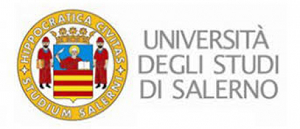Working Papers CSE Anno 2017
Carlo Curcio e l’idea di Europa
Carlo Mongardini
Condividi
Abstract
The work of Carlo Curcio “Europe. History of an Idea” (published in 1958 by Vallecchi, publisher of Florence, in two volumes with a total of over a thousand pages) is certainly one of the most significant historical works of the Italian 20th century. In connection with the problems of Europe today, the most interesting part of this book is the section covering the years 1848-1958, namely the last three chapters of the book and the conclusions. More than a historical piece, this section provides a sociological profile of European culture. The author describes how the European project has failed several times due to partial and total-itarian interpretations of the meaning of Europe: Europe as empire, as a conquest, as en-lightened fundamentalism, as a right, as an economy. Despite these failures, however, the idea of Europe has always survived within European intellectuals who, even amidst mis-representations and conflicts, have kept alive the sense that we Europeans are strongly linked by a common destiny. “The idea of Europe saves Europe”, wrote Curcio. Only through a reflection on the events of the last two centuries, it is possible to understand the current crisis: it is clear that diversity must not be deleted but must be accepted with tolerance because, writes Curcio, it gives rise to mutual enrichment. Therefore, the European project should be continued on a wider scale and complexity, more humanistic and ideal, without denying the importance of the economy but avoiding the simple conformism of a flat rationality.
Keywords
Idea of Europe; European Culture; Economicism.
Full Text: pdf
Doi: 10.14273/unisa-733
References
AA.VV. (2015), «Theory, Culture & Society», XXXII, 7-8.
Curcio C. (1934), Verso la nuova Europa, Napoli, Chiurazzi.
Curcio C. (1958), Europa. Storia di un’idea, 2 voll. Firenze, Vallecchi; Roma, ERI, 19782.
de Rougemont D. (1961), Vingt-huit siècles d’Europe, Paris, Payot.
Duroselle J.B. (1965), L’idée d’Europe dans l’histoire, Paris, Denoël.
Ferrero G. (1918), La vecchia Europa e la nuova, Milano, Treves; Napoli, ESI, a cura di Donatella Pacelli, 20032.
Gentile E. (2016), Quegli occhi chiusi della borghesia sul fascismo, in «Il Sole24Ore», 1 maggio.
Mongardini C. (2009), a cura di, L’Europa come idea e come progetto, Roma, Bulzoni.
Pasini D. (1978), Nota Introduttiva, in Curcio C. (1958), Europa. Storia di un’idea, Roma, ERI.
Pastori P. (2006), Carlo Curcio (1898-1971). Un tradizionalista meridiona-le fra liberalismo, fascismo e democrazia, Firenze, “Vetus ordo novus”.
Simmel G. (1976), Come si conservano le forme sociali, in Id., Il conflitto della cultura moderna e altri saggi, a cura di C. Mongardini, Roma, Bulzoni.
Touraine A. (2007), Existe-t-il une société capitaliste?, in Mongardini C., a cura di, Lo spirito del capitalismo contemporaneo, Roma, Bulzoni.
Vita-Finzi P. (1961), Le delusioni della libertà, Firenze, Vallecchi.
Watier P. (2015), La concezione della guerra nelle opere di Georg Simmel, in Pacelli D., a cura di, Le guerre e i sociologi, Milano, FrancoAngeli.


